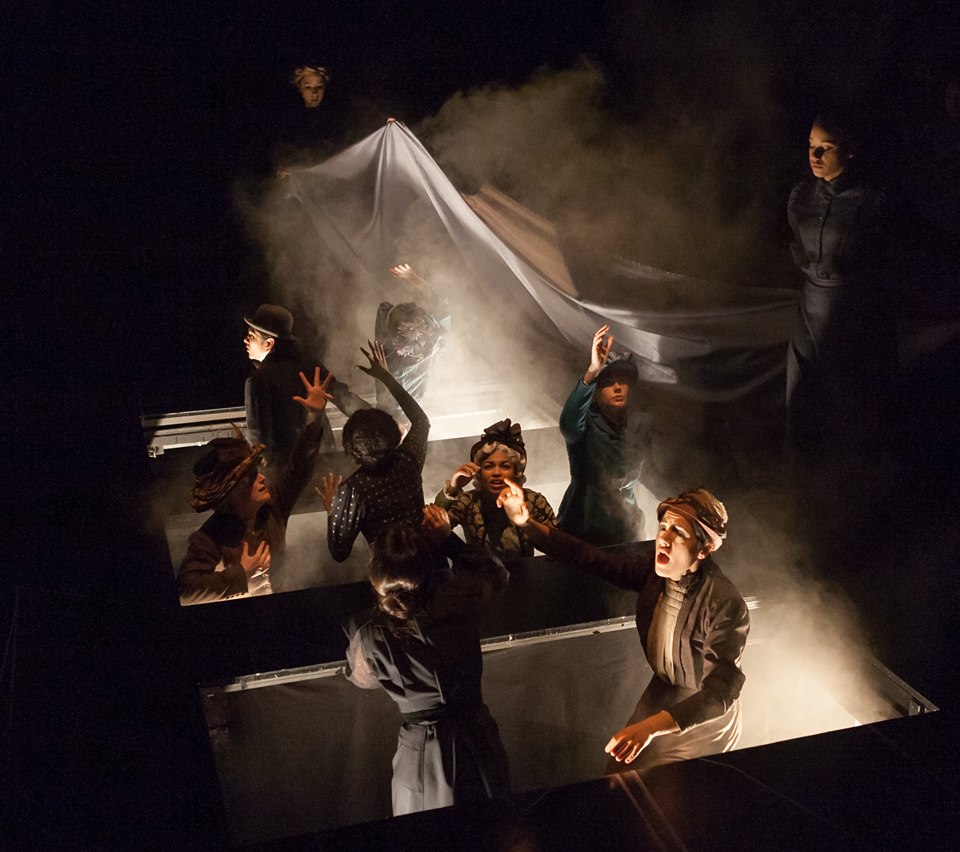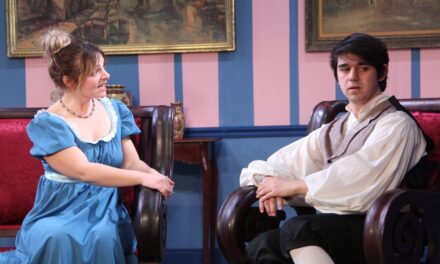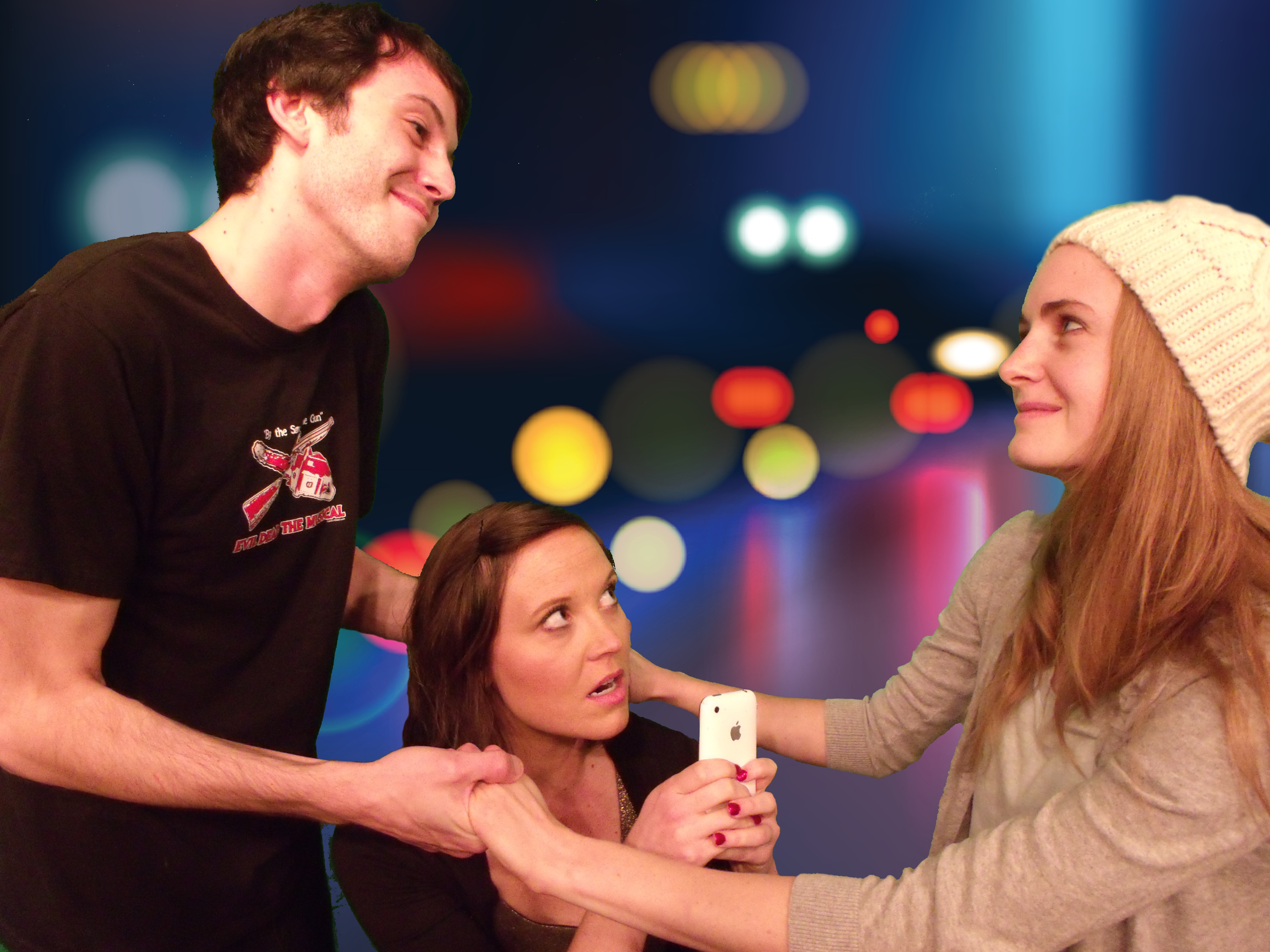Alan Cumming.
Interview with Alan Cumming by Scott Dowd
Entire contents copyright © 2016 Fearless Designs, Inc. All rights reserved.
Alan Cumming is an eclectic performer who flows from performing a one-person adaptation of Macbeth on Broadway to his portrayal of Piers Cuthbertson-Smyth in the Spice Girls’ 1997 film Spice World. That is why Time Magazine named him one of three most fun people in show business. His list of honors and accolades could easily fill this space. In addition to his awards for performing, he is a highly regarded photographer. He has written essays and books, including his courageous memoir Not My Father’s Son. He is an international humanitarian for children’s rights and a vocal campaigner for Scottish independence. He is also an American citizen who lives part of the time in New York City with his husband and their dogs. On November 30, Mr. Cumming is headed to Louisville’s Brown Theatre for a one-time performance of his one-man show Alan Cumming Sings Sappy Songs. The playlist includes everything from Miley Cyrus’s “The Climb” to Stephen Sondheim’s “Ladies Who Lunch.” I was able to speak with Mr. Cumming by phone as he was in a car on his way to work in Manhattan. Fortunately for me, he speaks quickly and has a lot to say!
Scott Dowd: For years you have been a vocal advocate for Scotland’s independence from the United Kingdom, yet you became a U.S. citizen. Why?
Alan Cumming: I have dual citizenship—I’m still a United Kingdom citizen and I am a citizen of America as well. I did it because I live in both countries and I wanted to be able to vote and participate fully in each. Scottish independence has nothing to do with my citizenship. If Scotland became independent, I would be a citizen of Scotland, not of the United Kingdom.
SD: Later this month you are bringing your one-man show Alan Cumming Sings Sappy Songs to Louisville. “Sappy” is an interesting adjective. What is it about these songs that make them “sappy” for you?
AC: I think “sappy” is one of those words that tend to be used in two ways—it has strong emotional connection, but you can say “sappy” to someone with a smile. These are all songs that I get moved by in some way or I have something to say in the singing—I’m signaling to the audience that they’re going to be intense emotional songs, but there is also going to be humor.
SD: This is a cabaret show that started at the Café Carlyle in New York City, a venue that has a certain reputation for not being frequented by the hoi polloi. Do you think you would have chosen different songs if it had been for a different audience?
AC: No, I don’t. I talk about this in the show. I do it for myself, because it’s what I want to do. If you’re an artist of any kind, I think you do it for yourself first and hope that other people like it. On my tour I go into places where people don’t share my political leanings and are different from me. And yet they’ve come to see me. I actually think it is fascinating to just be yourself. That’s what the whole show is about—authenticity. People really respond to that whether or not they agree with you or not. In some ways they actually respect you more than if you were somebody who did share all of their opinions.
SD: I’ve seen a pattern of fluidity in your life and your work. There seem to be no fixed boundaries and that is reflected in the show. You have songs by Lady Gaga paired with Cole Porter classics.
AC: I’m a very eclectic person in all ways, but nothing I do is for shock value or to be sensational. I do think of myself as a bit of a provocateur because I feel comfortable doing it. The list of songs in this show may confuse people; but actually, when you see the show, I think it makes sense.
SD: So you’re not on the road with the show right now?
AC: I stay at home in New York and fly out for performances. It’s a bit broken up as tours go, but I prefer doing it that way.
SD: You’ve described yourself as an actor who sings, rather than a singer. What is the distinction for you?
AC: When I say I’m an actor who sings, I just don’t have one of those voices that’s stunningly beautiful that you might just want to close your eyes and listen to and, you know, bathe in it. I do have a nice enough voice, but it’s more about what I bring to a song, how I interpret a song and how I tell the story of a song. That’s more of what I’m interested in when I listen to singers. In some ways I’m uncovering the songs and letting them be heard in a different way. I enjoy doing that. It’s like playing a part that’s well known in a different way—giving it your stamp.
SD: It’s going back a little bit, but that’s just what you did with Cabaret. You took Joel Gray’s iconic portrayal of the emcee and made it yours. Were you consciously trying to make different choices?
AC: Not at all. I did it the way it made sense to me.
SD: I don’t know how much influence you had on the director’s choices, but some of them certainly seemed to reflect your thoughts as a bisexual person.
AC: Sam Mendes is a great collaborator. I don’t try to change people’s minds about whether they believe in bisexuality. I think my sexuality and most people’s sexuality is gray. I am married to a man. I have a healthy sexual appetite and a healthy imagination. I also have an attraction to women. I’ve never lost it, actually. I’ve always been attracted to both sexes, and whether I act on it or not is not anyone’s business, really. I’m not going to close myself off to the possibility of experience just because society says we must stick within these rigid boundaries.
SD: In your memoir, Not My Father’s Son, you talk about the trauma you and your brother were put through growing up. Yet, you specifically eschew The Method in your acting. What aspects of The Method do you find unappealing?
AC: I think there is a big difference in drawing from your own life experience and being a Method actor. Obviously, everything that you are—everything that you’ve experienced—has made you the person you are. So when you come to a role, you bring your own knowledge and your own emotional back catalogue with you. But I just try to act like that person. I don’t look into a role and try to do The Method in order to be able to play it. I don’t think those things are connected. The Method is actually detrimental to the idea of the play and engaging with other people. It’s an insular way to act. It can be great, it can get great performances, but it’s not really bouncing off other people. It’s about taking yourself out of the situation you are in, thinking of something else from your past and bringing that back into a scene that actually might have nothing to do with what that scene is about. I don’t see it. I like to have more spontaneity.
SD: Of course, when you are doing a one-man show like your adaptation of Macbeth, you don’t have other people to respond to.
AC: Well, there were two other people in it and sometimes they came on stage to join me in this set we created. It was difficult being out there for long stretches by myself. It was an intense experience. I think a play, or anything that you perform on stage—even a non-musical play—is like a piece of music itself. The phrasing, the rhythm of it and the great thing about doing Macbeth, for me, was that I controlled the music. I knew how the other person was going to respond because it was I! In a funny sort of way, that part I really did enjoy because it was nice to make my own music. I would have loved to have had some back-up since it meant that I didn’t have any time off. When I went on stage, I couldn’t really even cough. There was no moment where I could do things that you normally do when someone else is speaking. So that was crazy.
SD: Going back to Alan Cumming Sings Sappy Songs, do you cue the audience as to what you want them to get from the song, or do you let them find it?
AC: A bit of both. Sometimes I will tell a story and have a song that responds to it. For instance, I sing the Billy Joel song “Good Night Saigon” after talking about my grandfather who died in Malaysia playing Russian roulette. I talk about war, the effects of war, and sing that song. I don’t necessarily make it so obvious, but sometimes I go into a song that has some kind of resonance with it.
SD: We look forward to your visit to Louisville later in the month. What kind of evening are you hoping to provide audiences?
AC: I hope that people will feel like we connected and that they had a smorgasbord of an evening. You laugh, you cry, you learn more about me than you would probably ever want to know. But I hope they feel connected to the guy who is telling some stories and singing some songs. It’s an old fashioned evening, and I hope to touch people in some way.
The vintage qualities of the evening will no doubt be enhanced by the fact that Alan Cumming Sings Sappy Songs is being performed as part of the LEO A Little Off Center Series in the beautifully restored Brown Theatre. You get only one chance to be part of the evening, so get your tickets now. The performance begins at 7:30 p.m. on November 30. Call right now (502.584.7777) or click on kentuckycenter.org.
Scott Dowd has a wealth of experience working within and commenting upon the arts scene in Louisville. He has been involved with Kentucky Opera, the Louisville Orchestra, and Louisville Public Media. His talents and experience include: Actor; Director; Singer; Musician; Radio and Television Interviewer; Classical and News Jock; Public Speaking; Public Relations; Marketing; Development; Writer; Substantive Editor. He currently serves on the Board for Arts-Louisville.com.





